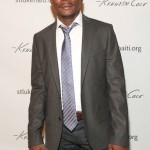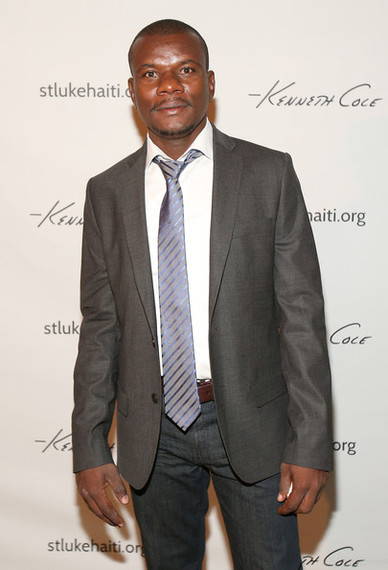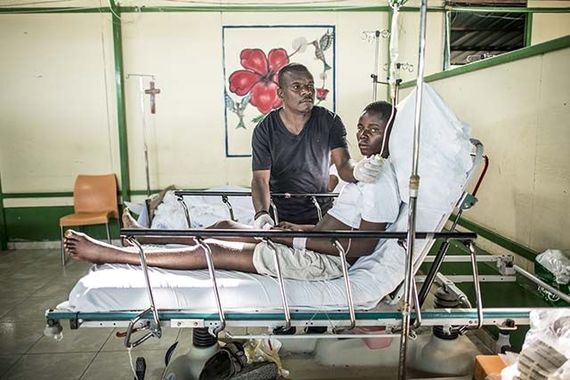
Paradigm Shifters is a series of interviews with a select group of women and men from eclectic walks of life. It will highlight unspoken, real-life insights on how they have been able to turn weakness into strength. A naked soul point of view of how their breakdowns were really a preparation for breakthroughs. They are your quintessential paradigm shifters; internal shifts converted into genuine change. Everything I have ever done has been focused on this underlying theme of shifting the paradigm because, “What we think determines what we feel and what we feel determines what we do.” Hence, why Empowered…
Paradigm Shifters is a series of interviews with a select group of women and men from eclectic walks of life. It will highlight unspoken, real-life insights on how they have been able to turn weakness into strength. A naked soul point of view of how their breakdowns were really a preparation for breakthroughs. They are your quintessential paradigm shifters; internal shifts converted into genuine change.
Everything I have ever done has been focused on this underlying theme of shifting the paradigm because, “What we think determines what we feel and what we feel determines what we do.” Hence, why Empowered by You takes lingerie, which has traditionally been seen merely as a tool of seduction and redirected that energy as a tool of empowerment.
I hope from these stories you will look at your own situations, struggles and accomplishments through a different lens. At the very least you will be more equipped with real life tools to change your own paradigm. At the end of the day, we are our own Alchemist turning the silver we were born with into the gold we are destined to become.

How did you come to be the director of the Kenneth Cole Haiti Health Center?
In 2010 I visited the area of Cite Soleil know as Soleil 22, where the Kenneth Cole Haiti Health Center now is. The people there approached me because they knew I was working with the St. Luke Foundation http://stlukehaiti.org/, and they spoke to me about how badly the area needed a health center. I listened and told them that I intended to keep in touch. I really meant it but at that time I was responsible for St. Luke’s Hospital in Tabarre, a hospital that responded to the need created by the earthquake and also the cholera epidemic. That was a big job and it needed my full attention.
During that time our leadership found funding, thanks to partners like Kenneth Cole, to build St. Mary’s Hospital in Cite Soleil, and since I knew the people and the area well and I had managed clinics and hospitals before, St. Luke’s leadership asked me to lead that health center. That’s how we work at times, we have experienced people start a new program, provide leadership initially, and then hand it off to others once it’s working well and so that’s what I did with St. Luke’s Hospital so that I could go to St. Mary’s and the KCHHC.
How did your relationship with Kenneth Cole develop?
We started getting to know each other in 2012, and Kenneth became the driving force behind the KCHHC which is a big part of St Mary’s. We have a real friendship, real collaboration. Our staff has come to New York for events and meetings, and Kenneth and his staff, his family, his wife and daughters, have come to visit as well. You can tell he means what he says and that he is devoted to this effort with full heart. He’s helped financially and also with donated clothes and shoes in the area. He’s always welcome in Haiti and he’s always welcome in Cite Soleil.
What is the most challenging or difficult part of working at the Health Center?
It’s a very difficult area, and even if you’re doing a lot, it’s never enough because there is just so much need and poverty, so you just have to focus on what you can do each day. We’ve been developing capacity at St. Mary’s and we work together with St. Luke’s and our sister hospital St. Damien’s to provide the best care possible to those in need. We can always do more, with more financing and more support, we have programs that we believe in and we fight for, but it’s always hard to keep things funded, and that’s the hardest part.
Please share with us a patient’s story that has particularly stuck with you.
One was not that long ago, in August. There was a block party in Cite Soleil that went very late and turned violent. Some 40 people were shot and St. Mary’s was there to give first aid, treatment, and use our ambulances for the many who needed urgent surgery. I took three of them myself, men that I’ve grown up with, in our ambulance, for surgery. I see them all the time when I go to visit the hospital, and they’re still around thanks to our hospital there.
A lot of the cholera cases have stuck with me as well. It’s always so hard to watch someone come sick with cholera, especially a child, because it’s just a nasty and merciless and preventable sickness. A result of poverty. We had a very sick child come recently, who we treated first in Cite Soleil and then took to St. Damien’s once she was more stable. I knew her father when I was younger. The child is ok now but she arrived just in time. People come to us not only from Cite Soleil but from other neighborhoods as well, because now there are so few cholera treatment centers in the country.

You were recognized in 2013 for your outstanding dedication and support of the patients at the Kenneth Cole Haiti Health center. The story goes that you and a nurse helped keep a cholera patient alive by hand pumping his airways for 36 hours, after the ventilation machine failed. What gives you that unwavering dedication and what would you say to someone about never giving up?
Yes, for sure I remember that one too. What gives me strength is the people, their eyes, their struggles, their hope and light. I mentioned that father of the child that we saved, the man who’d brought his daughter. I saw that doubt in his eyes that uncertainty, as he brought her in.
Everyone in Cite Soleil knows loss, knows struggle, knows poverty, but that doesn’t mean it’s easy–no one gets used to that. So knowing full well that darkness and despair, and then seeing that light of life shine again even if it’s in one person, that’s the force behind all we do…bringing light to dark places, or rather letting the light that’s already there out.
People think you can’t work in Cite Soleil, you can’t have a hospital in Cite Soleil. It’s not true, you can, and we do. Even in the face of lots of doubt and trouble and darkness, we stick to the light and we know we can stay that way.
What is the most inspiring thing about the people of Haiti? What do you wish the world knew about Haiti that the mainstream media fails to display?
Haitian people have enormous courage. I don’t have time to watch the mainstream media so I don’t know for sure, but I don’t think they are showing too much of that. When you’re in Haiti you see clearly, everyone is fighting for life, fighting for progress. You can see it in people who sell things on the street or start whatever small business that they can and send their kids to school with the small money they make, rather than eating themselves.
You find situations where a whole family, 6 people are living in one room. When it rains they can’t sleep, they have to stand; when it’s hot, it’s too hot to stay inside, and despite such real poverty, such real struggle, every day they wake together, and they go in search of life. The courage is all over the place.
What has been your biggest breakdown to breakthrough moment?
I grew up in a very difficult neighborhood, very near Cite Soleil. Nearly all of my friends from childhood died through gun violence. My grandfather always told me the same things, he always repeated them and I can still hear his voice: “Always defend those who are in worse trouble than you are”, “Always share with those who have less then you”, “Always respect those around you, especially children and the elderly”. I always hear those words in my head.
Then as I grew older and I started to work with St. Luc, with Father Rick, and Nebez, and the leadership, I took those words to another level within me. I was working with TB and HIV patients, with people who had really no place to go, giving them humane care, bathing them, helping to feed them, find them clothes, find activities for them. This was in 1997, at one of our first clinics, in my neighborhood. There I learned that when people lose hope and faith, it’s just as bad as a disease, and giving them compassionate care is a key part of the treatment.
This realization really motivated me a lot, working in the clinic at that time really was a breakthrough, it showed me a path and a way forward, a different way of living.
What kind of legacy do you wish to leave behind?
It’s what I talk about with my son, who is 4 years old. It could always be worse, even when things get bad for you, that’s exactly the time to help others. It’s always possible to help others, whether it’s in a big way or a small way, and that will feed them and it will feed you too.
If you’re helping others, with your full heart, no matter what else happens around you, you feel clean and light, and then nothing can touch you.
The St. Luke Foundation for Haiti is a 100% Haitian-run non-profit organization, providing education, medical care and dignified humanitarian outreach in places that have been under-served by traditional service providers. The St. Luke Foundation for Haiti reaches more than 90,000 people per year through life-giving programs that employ over 1,000 Haitian staff.
For more information on how you can help, go to http://stlukehaiti.org/
— This feed and its contents are the property of The Huffington Post, and use is subject to our terms. It may be used for personal consumption, but may not be distributed on a website.
See original:

























